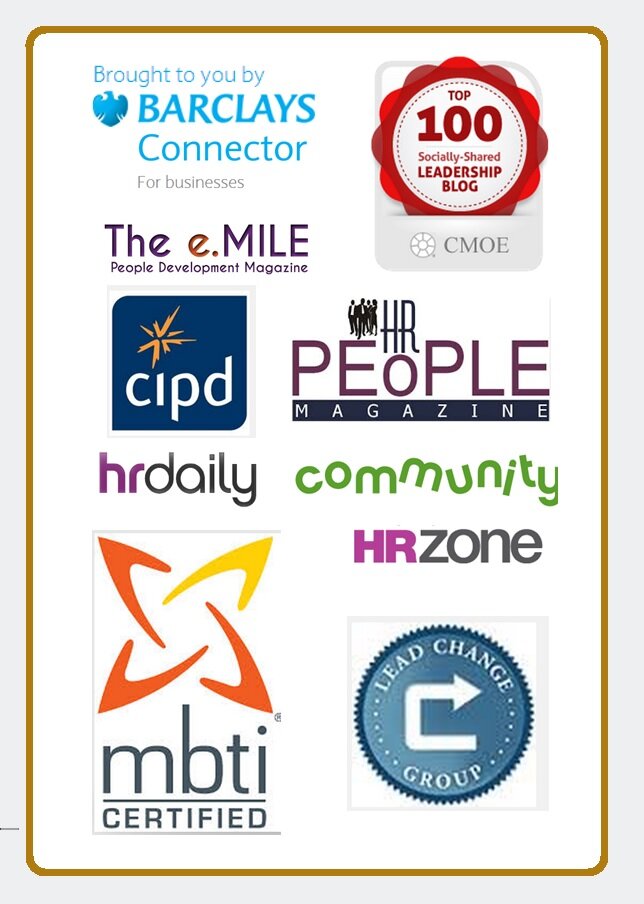 In the new social world we now live in, the importance of teamwork in any organisation is key. Being a collaborative team player, aligning purpose, values and effort will be the hallmarks of a great employee.
In the new social world we now live in, the importance of teamwork in any organisation is key. Being a collaborative team player, aligning purpose, values and effort will be the hallmarks of a great employee.
Andrew Armour sets out the need for collaborative working in Why Superteams Win In The Social Era Of Business, and asserts that 86% of senior executives surveyed in the 2011 Innovation Barometer, viewed collaboration as vital to innovate, but only 21% had the culture and people to do so. I believe that things have probably moved on since then, but we still have some way to go.
Being a team player at whatever level in the organisation is a skill which increasingly, organisations will view as essential., according to Mckinsey because of global talent shortages. Because the dynamics of our world are changing so rapidly and significantly, team members no longer need to sit back with frustration or without a voice. As has been demonstrated in many incidents over the last few years, employees have used social platforms to “out” many illicit, unfair or just plain silly practices. Conversely, team players can be the biggest advocates and champions for their employers, as they tell glowing stories across their social media communities.
In an increasing global economy, as Mckinsey’s article points out, there might well be heavy demands on highly skilled interactive professionals: A collaborative aligned team is going to be essential to help bridge any gaps. Change is in the air, and switched on employers are already realising that culture change is essential to meet the challenges of the social era, and the talent marketplace. Good HR Expertise is essential.
As an employee, you will gain a distinct advantage if you understand what is going to be needed to be a valued team player. You are going to find that respected employers are increasingly going to be looking at how well you collaborate with others, how positively you interact in the social world, and how much you buy into their values and purpose.
How can you become the team player that good employers will be lining up to have in their team?
Having led and managed literally hundreds of employees, there are some timeless qualities I have encountered which for me make up the ideal team player. Of course in an ideal world, you rarely get the whole set of team player ideal qualities. We are perfect in our imperfections. The following attitudes, traits and qualities are so good to work with, and one’s I would certainly be looking for in any assessment, certainly for key players in my team.
As a great team player you will:
- Take responsibility for yourself. This means not automatically blaming your tools, your colleagues or management, but being self aware enough to say “perhaps I could have done something differently”.
- Get the big picture and understand exactly what we are trying to do together – You don’t naturally have to be a big picture thinker. In fact some organisations may employ you because of your attention to detail, but being able to pull yourself out of the detail sometimes is a huge advantage.
- Have an affinity with and believe in what we are trying to achieve – You will love our products, love what we are trying to do, and it makes you happy because you think by virtue of working with us you have been part of it all.
- Give a positive account of the organisation and concentrate on what is good about it – This does not mean pretending that everything is ok and smiling when it isn’t, but realising that even though things might go wrong, there is positive intent behind the decision making. It really is about giving others in the team whatever their role “the benefit of the doubt”.
- At times when it is crucial for the business, go the extra mile – Being committed to pulling out the stops when necessary. There is a fine line between occasionally having to put in more effort and it being expected as a matter of course, so if it’s too much, have the confidence to say so.
- Care about others on your team – This can be tough because team work can be a hot bed of relationship problems. But with some determination and commitment to creating a caring environment, then concerted effort is never lost.
- Commit to resolving differences in an adult and win/win way – Workplaces can be the worst place to play out the parent/adult/child relationship. A paternally based organisation is definitely becoming an old paradigm. Becoming aware of the paradigm, is the lamp needed to dispel it.
- When you’re not able to fulfil your contract for any period of time for family or medical reasons, you commit to doing your best to get back to work as soon as you can because you know how crucial you are to the excellence of the business.
- Commit to getting the work done, on time and to the best of your ability – This is not just for the team, this helps to raise your own personal standards and improve your own energy. It always pays dividends, and will be noticed.
- Trust us to make the best decisions we can with the information we have, even if you don’t like it. With millions of decisions to make, some with consultation, some not so democratic, its a minefield, and we’re not always going to get it right. Sometimes you aren’t going to like it, but you trust the intention is good behind it.
- Understand we have a mutual contract and we will respect your rights, and you respect ours. – if it’s not working, then, communicate, communicate, communicate until it’s right.
- Forgive us our mistakes, we all make them – Help to create a no-blame culture, where we know none of us are perfect, but we will learn from our mistakes, not use them to beat each other up.
- If you’re not happy come and tell us about it constructively, trust us to listen and do something about it – Be open to different ways of seeing things, and commit to finding a solution. Don’t be that person who is happy being unhappy.
- If you can’t commit to any of the above, consider how you are contributing to the success of the organisation, and if you can’t or won’t commit then consider your position. If we are doing everything we can to collaborate and it’s still not working then you might be simply in the wrong job.
So there you have it, my somewhat idealistic list of a great team player. It might sound impossible, but I have encountered such positive traits collectively along the way. I would hope many of them are traits I displayed as a team player myself, although, I’m not sure if my past teams would agree. I’m sure there are also many to add, what would be your ideal wish list for a great team player?
If you are a leader, you are continually developing and "Sharpening the Saw". If you lead and manage teams, then you must read about our Inspirational New Leadership Programme. Sign up now to find out more details when we launch in July 2014. There is no obligation to undertake the programme, if you sign up today, you will simply be sent more information about the programme. You can unsubscribe at any time! Click below to register for further information.







